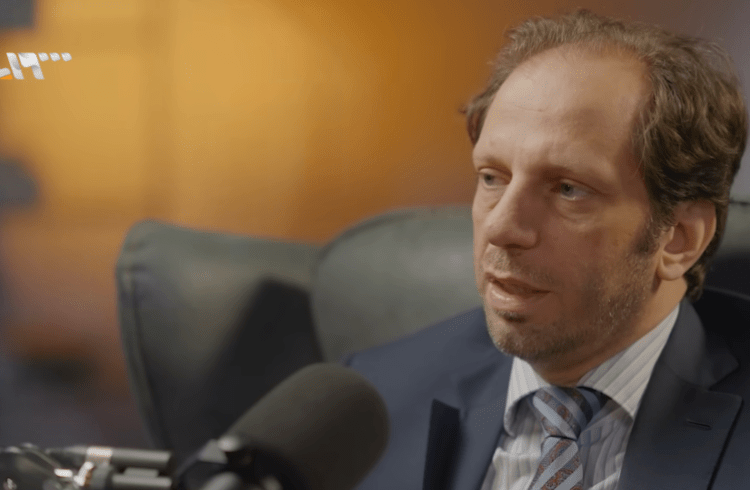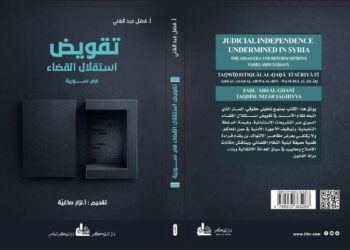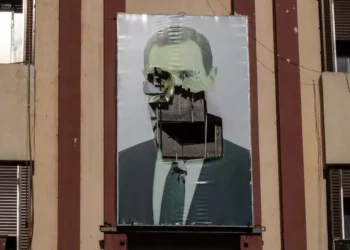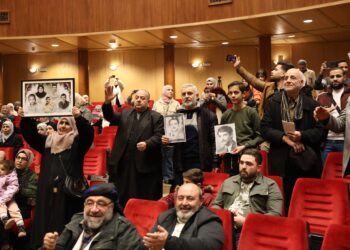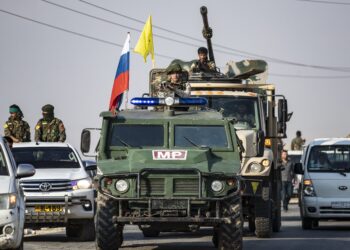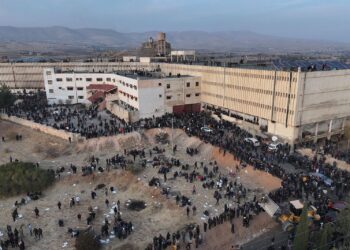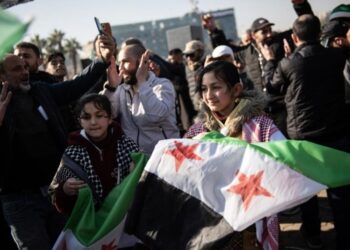Syria TV
The director of the Syrian Network for Human Rights, Fadel Abdulghany, called on the Syrian government to take immediate steps to prosecute and hold accountable those responsible for the violations that occurred in the “coastal region,” based on the report of the National Commission for Investigation and Fact-Finding on the events in the Syrian coastal region.
In an interview with Syria TV, Abdulghany stressed the need for judicial independence and compensation for victims, noting that what happened sends an important message about what is currently happening in Suwayda.
Investigation Committee and Performance Evaluation
Abdulghany expressed his appreciation for the efforts of the committee investigating the events in the coast, describing them as “commendable” and ‘good’ and emphasizing that this was the “first national experience” in this context. Although he had not seen a written copy of the report, he listened to the press conference and the findings, considering that the committee “did a good job with reasonable and good standards.”
At the same time, Abdulghany pointed out that the report’s findings did not reveal anything new, as they were almost identical to what had already been published by the Syrian Network for Human Rights and what was already known and widely circulated.
He said that the Reuters report itself reached similar conclusions, noting that the Syrian Network for Human Rights documented the deaths of 125 people on the first day of the events, an announcement that sparked an “outcry against the network” at the time.
Five days later, the network had documented the deaths of around 823 people. The report’s findings matched the network’s figures, stating that around 500 people had been killed in the Sahel region and around 400 security personnel and civilians had been killed by “remnants” of the former regime. Thus, the total number ranges between 1,800 and 1,900 people.
Abdulghany warned against “exaggerations and inflations” that put the number of deaths at over 5,000, 7,000, or even 10,000, stressing that these figures are ‘fallacies’ coming from “media outlets” that claim to be documenting but lack “any standards of documentation” or “methodology.”
He pointed out that such statistics, which are not based on accurate documentation, have proven to be “false” and aim to “create confusion and chaos” or serve “a specific agenda.” He believes that the phenomenon of exaggerating numbers is currently being repeated in Suwayda.
Recommendations
Abdulghany considered the report’s recommendations to be “good and fair” for all victims, but he did offer some criticism of the commission, noting that the violations began on the sixth day of the month, while the commission stated that its mandate was between the seventh and ninth days of the month.
Abdulghany corrected this time frame, saying that it should be “from the 6th to the 10th,” and perhaps even continue “until the end of the month.”
He explained that the violations “did not completely stop” after those days, but rather there were “sporadic killings, looting, theft, and so on,” stressing that such horrific violations “do not end overnight.”
Abdulghany acknowledged that the committee faced “very big challenges,” including “security challenges and so on.”
The responsibility now lies with the Syrian authorities
Abdulghany affirmed that the commission had done its job and that “the ball is now in the Syrian authorities’ court,” as “the responsibility has been transferred to them.” He called for decisive steps to be taken, most notably:
Arresting and holding those responsible accountable: Abdulghany called on the public prosecutor to “arrest all those named in the committee’s report,” whether they were “remnants” or “factions” or “civilians” or from ‘security’ or “the army.” He noted that this assertion reinforces what the network had previously stated, which caused a “severe attack” on it at the time, namely that “security forces and the army committed violations.” He stressed that concealing these facts harms state institutions rather than benefiting them, and that “countries pay huge sums of money to obtain accurate information.”
Independence of the judiciary: He stressed the need to work on “the independence of the judiciary in Syria” to ensure “fair accountability for all.” He proposed restructuring the “Supreme Judicial Council to be completely independent from the executive authority” and that it be composed of “judges, experts, and civil society” in accordance with “international standards for the formation of the Supreme Judicial Council.” He also called for a “complete revision of the constitutional declaration” regarding the appointment of “judges of the Supreme Constitutional Court” so that they are “not appointed by the executive branch.”
Compensation for victims: He stressed the need to begin “the process of compensating these victims,” acknowledging “their suffering” and providing “extensive compensation” for the violations committed against them “by all parties.” He called for this to be done “as soon as possible.”
Abdulghany believed that taking these steps in the Sahel case would “send a message” to what is happening in Suwayda, calling for the formation of a “national investigation committee” in Suwayda as well, which would benefit from and build on the “experience of this committee.” He suggested that its formation should be “more independent” with “a greater role for independent Syrian civil society institutions.” . He concluded that these measures would “send a message to the victims” and begin a “process of restoration and reconciliation.”
